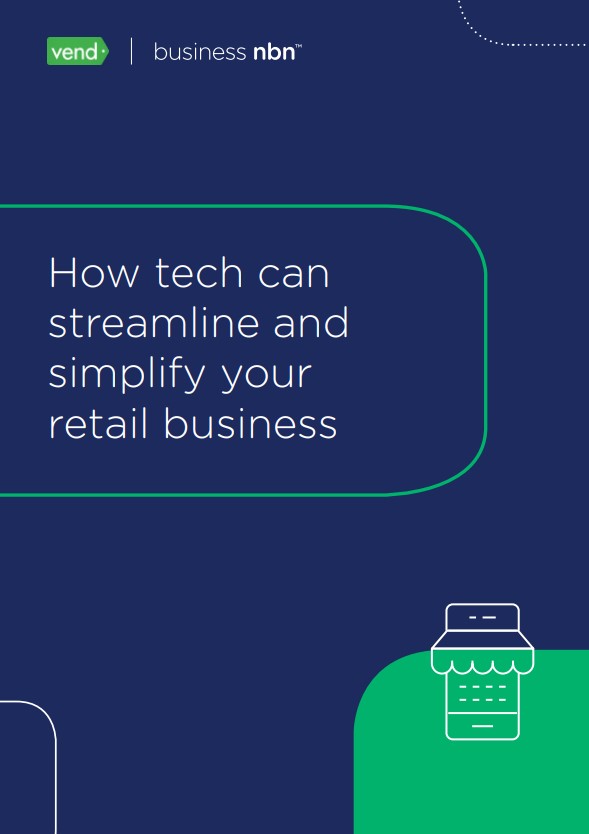
How integrated systems give your business superpowers
From embracing remote working to the rise of ecommerce, the COVID-19 pandemic has helped accelerate all manner of existing technological trends.
And another trend amplified in recent times?
Small and medium businesses have been embracing the kinds of tech tools previously exclusive to corporates at the top end of town.
Technology with a specific purpose – such as accounting, inventory management and Customer Relationship Management software – has been available to SMEs for some time now and, on their own, those offerings have made a significant difference to business capabilities.
Yet, when several such systems are implemented in the same environment, creating a ‘technology stack’, they allow the business to conduct each function in a new way, enabling simplification, better performance and new insights.
Supercharging the stack
The capabilities offered by those technology stacks become truly supercharged, though, when each system shares information with the others.
This enables an entirely new level of transparency, automation, personalisation and performance, and it’s helping to change the way businesses work.
“For anyone who’s been using a legacy or on-premises solution, where they can’t access their systems or data from home or from other remote locations,” says Gordana Redzovski, Vice President APAC at Vend, “business has been quite stressful during the COVID-19 crisis.”
“And, so, having not only a system they can access in real time, but one that integrates seamlessly with the rest of their technology stack, is a vital part of doing retail business well in the new business environment.”

Integrating systems
Many business managers are accustomed to treating different functions, and the software that supports them, as unrelated.
As a result, when Human Resources requires accounts-related information, they need to speak with someone in Finance. And when a marketer is organising a campaign to target a specific audience, they must communicate with Sales to gather the necessary data.
Leading systems, for example, can integrate with accounting and rostering software, with marketing, payroll, HR, sales systems and more.

So, when a customer enters a retail outlet, the assistant can immediately see, on their handheld tablet, any other interactions the customer has had with the business, including the products they have purchased, how often they shop there and their preferred payment method.
It also means the customer, no matter how or when they communicate with the business – via social media, a phone call with the accounts team, a visit to a physical store – will always have a consistent and easy experience. They won’t have to repeatedly explain themselves or wait on hold as various staff members exchange information.
It will feel as if the business knows them well, and that’s an extremely powerful advantage in today’s business environment.
Integrating to engage staff
Then there’s the experience from the point of view of staff, who – generally speaking – use great technology in their personal lives, like smartphones and apps.
When they’re still using pen and paper at work, or have to make phone calls to retrieve information they should be able to see on their smartphone screen, it’s can be unproductive, unenjoyable and affect their engagement.
Integrated platforms, on the flipside, simplify and streamline processes.

For example, they can automatically reconcile payments to the accounting system, eliminating a labour-intensive process from the end of every trading day.
They can offer a real-time view of retail operations from any screen, anywhere, and they can show a business what’s selling well, at what time of day and to whom.
“The reporting, to me, is one of the most exciting aspects,” says Redzovski, of integrating systems. “It takes all of the guesswork out of running a retail business and gives you high-level insights, whilst allowing you to dive into the details, as well.
“This is everything from what products are selling and how much they’re selling, right down to the demographics of customers buying those products.
“This informs you around how you can better engage with your most valuable customers, helping across the rest of the business.”

In essence, integrated systems help staff and managers to focus on the business, including identifying growth opportunities, recognising trends in the market and detecting areas of wastage.
And they can connect products or services with specific types of customers to help increase marketing effectiveness.
“I’ve spoken to businesses that, after a busy day of trade, spend hours reconciling payments,” says Redzovski.
“When this is automated, they then have the time and the information they need to assess performance and make important, informed decisions about their business. It empowers them to make great decisions.”
Running a better business

Previously, this kind of technology was reserved for the major players because it required massive expertise and vast resources.
Today, the same capabilities are available to SMEs, enabling them to automate and simplify the process of running a business.
By offering high-level insights and reporting, integrated systems can help remove the guesswork from business, while also allowing a business to be more flexible, adaptable and better able to identify and take advantage of opportunities as they present themselves.
Every stakeholder, including customers, can have the necessary level of access and transparency to do what they need to do, and it can also help customers remain loyal to those that meet or exceed their expectations.
Put simply, when it comes to integrated systems, work can be simplified, streamlined and automated.
Now that’s what we call a superpower.
